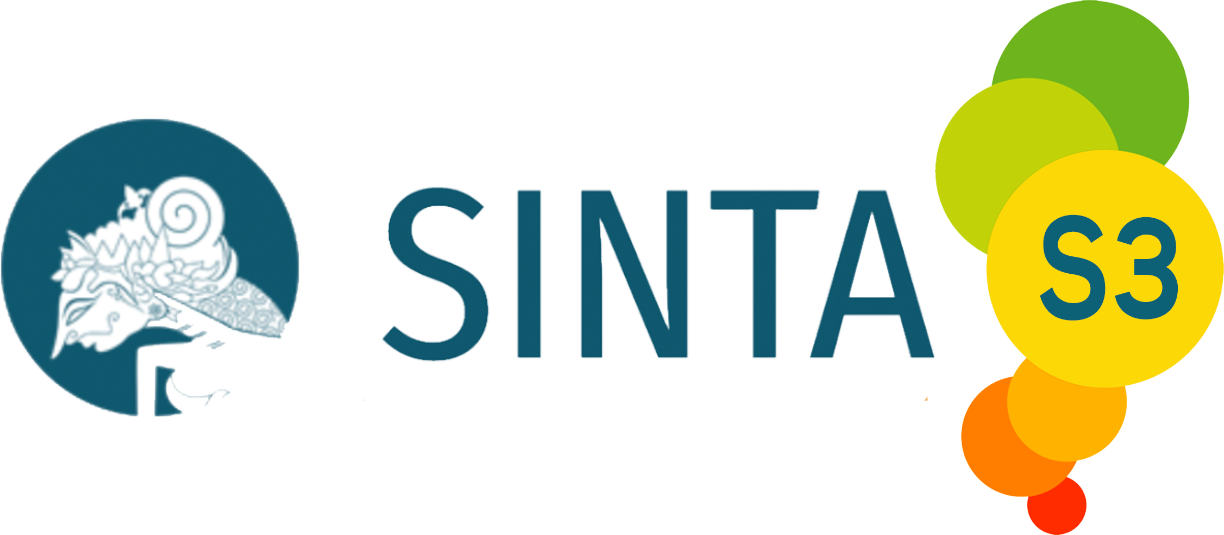Model hipotetik pendidikan IPS berbasis pesantren untuk membangun kecerdasan sosial
Idrus Affandi, Universitas Pendidikan Indonesia, Indonesia
Kokom Komalasari, Universitas Pendidikan Indonesia, Indonesia
Erlina Wiyanarti, Universitas Pendidikan Indonesia, Indonesia
Abstract
The purpose of this research is to analyze the social studies value-based hypothetical model of Islamic boarding schools to build social intelligence. This research was conducted at the Islamic Boarding School of Al-Ihya 'Ulumaddin Cilacap Indonesia using a qualitative approach with the case study method. The data were obtained through observation of educational activities in Islamic boarding schools, in-depth interviews with informants, and evaluation of the documents obtained during the research process. The data is then analyzed through reduction, presentation, and conclusion/verification. Based on these stages, it is then presented in the form of information about a hypothetical model of social studies education based on Islamic boarding schools. Values education in Islamic boarding schools is carried out integrally in a religious education system that refers to several sources, namely Islamic religious teachings, the legacy of the clergy, the heritage of Islamic boarding schools, the thoughts of Imam Ghozali, the thoughts of the founders of the Islamic boarding school, community culture, and Pancasila. The values explored and developed at Islamic boarding schools consist of worship values, suhbah values, taadun values, tawasuth values, consistent commitment values, istiqomah values, patience and gratitude values, taawun values, mutual respect values, perseverance values, simplicity values, values courage over kindness, and the value of sincerity. The hypothetical model of social studies education based on Islamic values is carried out by bringing students to the pesantren environment to be involved in learning activities so that students can feel the atmosphere of the Islamic boarding school environment. The key to the success of values education in Islamic boarding schools is leadership and exemplary kyai so that support from all components appears, both from the internal pesantren and the community.
Keywords: Hypothetical Model, Social Studies Education, Islamic Boarding School Values
Keywords
Full Text:
PDFReferences
Albrecht, K. (2006). Social Intelligence. Jossey-Buss
Joyce, B,. Marsha W, and Calhoun, E. (2009) Models of teaching (Model-model Pengajaran Edisi Kedelapan). Pustaka
Creswell, J. W. (2014b). Penelitian Kualitatif & Desain Riset: Memilih Diantara Lima Pendekatan. Yogyakarta. Pustaka Pelajar. Terjemahan dari Qualitative Inquiry & Research Design: Choosing Among Five Approaches, Third Edition: By SAGE.
Denzim, N. K. & Lincoln, Y. S. (2009). Handbook of Qualitative Research. Yogyakarta: Pustaka Pelajar.
Depdiknas. (2003). Undang-undang No. 20 tahun 2003 tentang Sistem Pendidikan Nasional.
Dhofier, Z. (1980). The pesantren tradition: A Study of the Role of the Kyai in the Maintenance of the Traditional Ideology of Islam in Java. (Disertasi). Australian National University.
Goleman, D. (2015). Social intelligence: Ilmu baru tentang hubungan antar-manusia. Gramedia Pustaka Utama.
Huberman, M. & Miles, M. B. (2009). Manajemen data dan metode analisis. Dalam Denzim, N.K. & Lincoln, Y.S. (Ed), Handbook of Qualitative Research. Pustaka Pelajar.
Jailani, I. A. (2012). Pendidikan Pesantren Sebagai Potret Konsistensi Budaya di Tengah Himpitan Modernitas. Jurnal KARSA, Vol. 20 No. 1 Tahun 2012.
Mastuhu (1994). Dinamika sistem pendidikan pesantren: SuatuKajian Tentang Unsur dan Nilai Sistem Pendidikan Pesantren. Jakarta: INIS. Diakses dari https://www.scribd.com/document/97650103/Dinamika-sistem-pendidikan-pesantren-suatu-kajian-tentang-unsur-dan-nilai-sistem-pendidikan-pesantren-Mastuhu.
Mircea, D., dkk. (2013). New values and attitudes in the didactics of teaching-learning contents in higher education. Journal Procedia - Social and Behavioral Sciences 93 ( 2013 ) 1850 – 1854. 3rd World Conference on Learning, Teaching and Educational Leadership (WCLTA-2012).
Muchtar, S. A. (2014). Inovasi dan Transformasi Pembelajaran Pendidikan IPS. Bandung: Gelar Pustaka Mandiri.
Mukhibat (2015). Meneguhkan Kembali Budaya Pesantren dalam Merajut Lokalitas, Nasionalitas, dan Globalitas. Jurnal KARSA: Jurnal Sosial dan Budaya Keislaman Vol. 23 No. 2, Desember 2015: 177-192.
P21 Partnership For 21st Century Learning. (2015 ) Framework for 21st Century Learning. Diakses dari http://www.p21.org/about-us/p21-framework.
Wahid, A. (1980). Pesantren sebagai subkultur. Dalam M. Dawam Rahardjo (penyunting), Pesantren dan Pembaharuan. LP3ES.
Yin, R. K. (2009). Case Study Research Design and Methods Fourth Edition (Applied Social Research Methods Series). London: SAGE Publications.
Zakaria, T. R. (2007). Pendekatan-pendekatan Pendidikan Nilai dan Implementasi dalam Pendidikan Pekerti. Dalam Hakam, K. A (Penyunting) Bunga Rampai Pendidikan Nilai. Bandung: Universitas Pendidikan Indonesia.
Zevin, J. (2011). Social Studies for The Twenty-First Century; Methods and. Materials for Teaching in Middle and Secondary Schools. New Jersey
DOI: https://doi.org/10.21831/jipsindo.v10i2.63359
Refbacks
- There are currently no refbacks.

This work is licensed under a Creative Commons Attribution-ShareAlike 4.0 International License.
.png)
JIPSINDO (Jurnal Pendidikan Ilmu Pengetahuan Sosial Indonesia)
ISSN: 2355-0139 (Print) | 2615-7594 (Online)
Published by: Universitas Negeri Yogyakarta
Website: https://journal.uny.ac.id/index.php/jipsindo
Email: jipsindo@uny.ac.id










